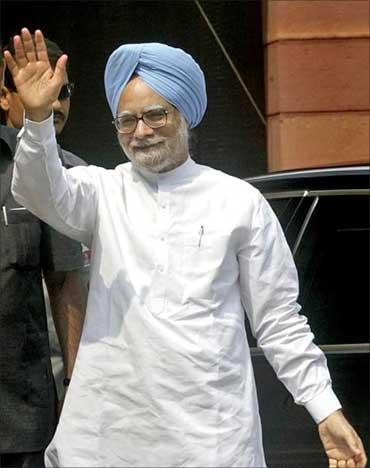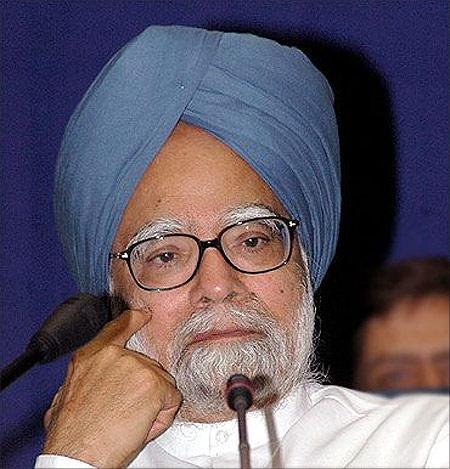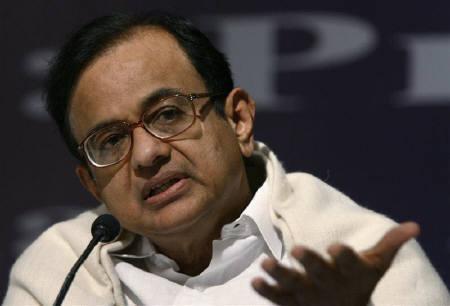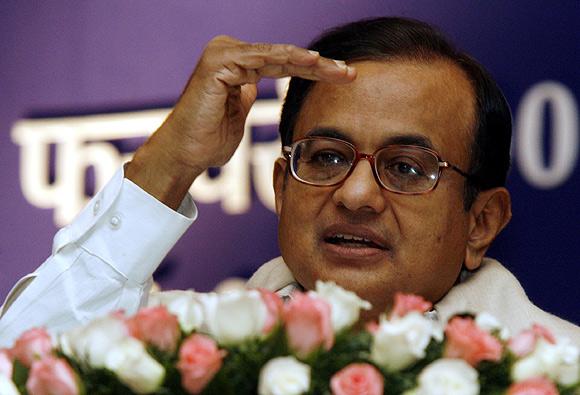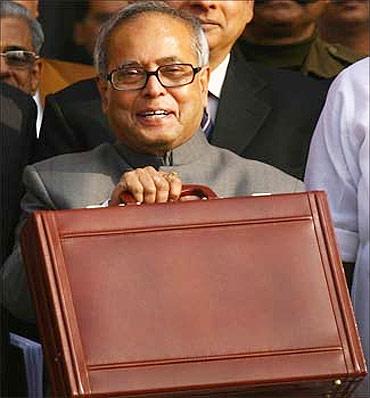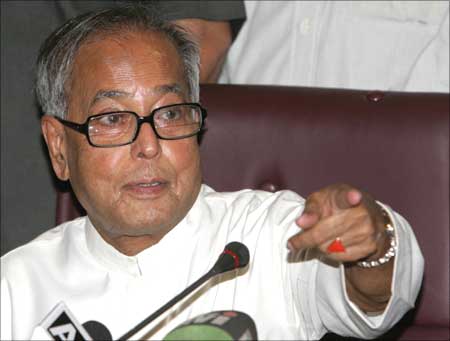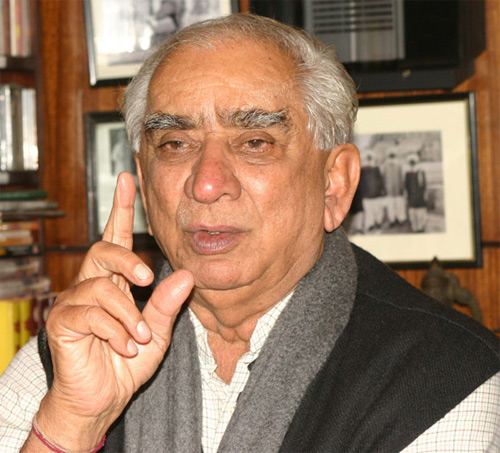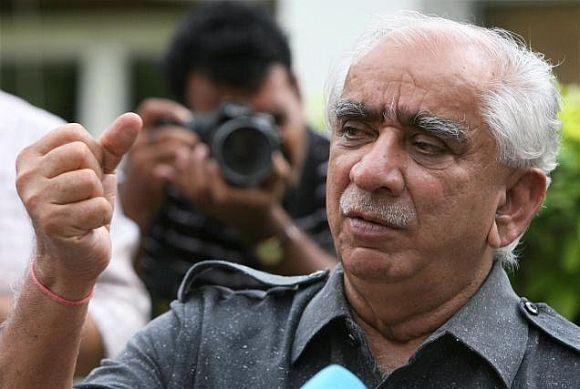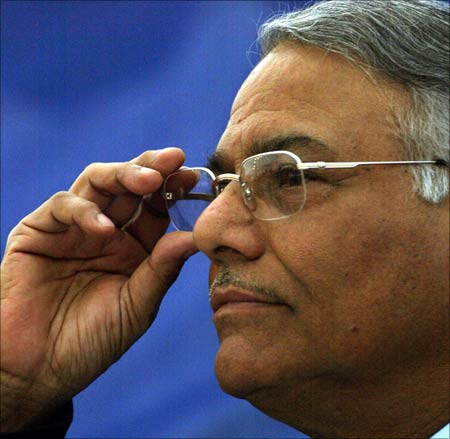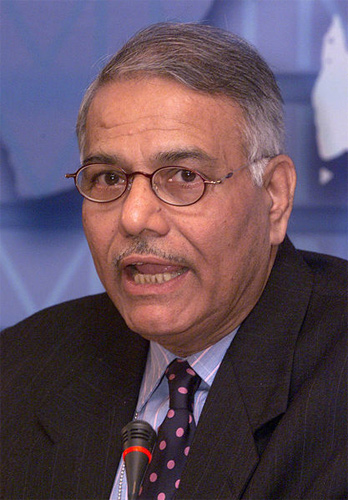 | « Back to article | Print this article |
Know more about India's finance ministers
Finance Minister P Chidambaram faces the challenge of reviving the economy, fiscal consolidation and improving prospects for the common man.
Over the years, India has seen different finance ministers charting out India's fiscal strategy.
Know more about the India's prominent finance ministers...
Manmohan Singh
Prime Minister Manmohan Singh began his bureaucratic career as an advisor in the Ministry of Foreign Trade.
Over the 70s and 80s, Singh held several key posts in such as Chief Economic Advisor (1972), Reserve Bank Governor (1982) and Planning Commission head (1985).
Click NEXT to read more...
Complete coverage: Union Budget 2013-14
Budget Impact Live!
Know more about India's finance ministers
In 1991, as India faced a severe economic crisis, Manmohan Singh was appointed as Finance Minister.
The neo-liberal policies included opening for international trade and investment, deregulation, initiation of privatization, tax reforms, and inflation-controlling measures.
Thanks to liberalization, India recorded its highest GDP growth rate of 9% in 2007. With this, India became the second fastest growing major economy in the world,
Manmohan Singh is hailed as the architect of economic reforms in India.
Education
BA (Hons) in Economics 1952; MA First Class in Economics, 1954 Punjab University, Chandigarh, India
Honours degree in Economics, University of Cambridge – St John's College (1957)
Click NEXT to read more...
Know more about India's finance ministers
P Chidambaram
Finance Minister P Chidambaram is a well known corporate lawyer. He served as Finance Minister of India 1996 to 1998 and from May 2004 to November 2008.
However, after the resignation of Shivraj Patil in November 2008, Chidambaram was made the Home Affairs Minister.
After a three and a half year stint as Home Minister, Chidambaram was reappointed Union Minister of Finance.
Click NEXT to read more...
Know more about India's finance ministers
Education
School: Madras Christian College of Higher Secondary School.
Bachelor of Science in Statistics from the Presidency College of Chennai.
Bachelor degree in Law from Madras Law College.
Masters Degree in Business Administration from Harvard Business School
Click NEXT to read more...
Know more about India's finance ministers
Pranab Mukherjee
The 13th President of India since July 2012, Pranab Mukherjee's political career spans six decades.
Congress party's top troubleshooter, Mukherjee was at the helm of several ministerial portfolios in the government of India.
Prior to his election as President, Mukherjee was Union Finance Minister from 2009 to 2012.
Click NEXT to read more...
Know more about India's finance ministers
Pranab Mukherjee began his career as an upper-division clerk in the office of the Deputy Accountant-General (Post and Telegraph) in Calcutta.
In 1963, he began teaching political science at the Vidyanagar College and he also worked as a journalist with the Desher Dak (Call of Motherland) before entering politics.
Education
Mukherjee attended the Suri Vidyasagar College in Suri (Birbhum), then affiliated with the University of Calcutta.
He has a Master of Arts degree in Political Science and History, as well as a degree in law from the University of Calcutta.
Click NEXT to read more...
Know more about India's finance ministers
Jaswant Singh
Jaswant Singh began his political career in 1980 when he was first selected for the Rajyasabha.
He served as Finance minister in the short-lived government of Atal Bihari Vajpayee, which lasted just from May 16, 1996, to June 1, 1996.
After Vajpayee became Prime Minister again two years later, he became Minister for External Affairs of India, serving from December 5, 1998 until July 1, 2002.
Click NEXT to read more...
Know more about India's finance ministers
In July 2002, Jaswant Singh became Finance Minister again, switching posts with Yashwant Sinha.
He served as Finance Minister until the defeat of the Vajpayee government in May 2004 and was instrumental in defining and pushing through the market-friendly reforms of the government.
He served as an officer in the Indian Army in the 1960s and is an alumnus of Mayo College and the National Defence Academy.
Click NEXT to read more...
Know more about India's finance ministers
Yashwant Sinha
Yashwant Sinha joined the Indian Administrative Service in 1960 and spent over 24 years holding important posts.
Sinha resigned from the Indian Administrative Service in 1984 and joined active politics as a member of the Janata Party.
He was appointed All-India General secretary of the party in 1986 and was elected Member of the Rajya Sabha (Upper House of the Indian Parliament) in 1988.
Click NEXT to read more...
Know more about India's finance ministers
When the Janata Dal was formed in 1989, Yashwant Sinha was appointed General Secretary of the party. He worked as Minister of Finance from November, 1990 to June 1991 in Chandra Shekhar's Cabinet.
He became the National Spokesperson of the Bharatiya Janata Party in June, 1996. He was appointed finance minister in March, 1998.
Education
Yashwant Sinha received his Masters Degree in Political Science in 1958. Subsequently, he taught the subject at the University of Patna till 1960.
